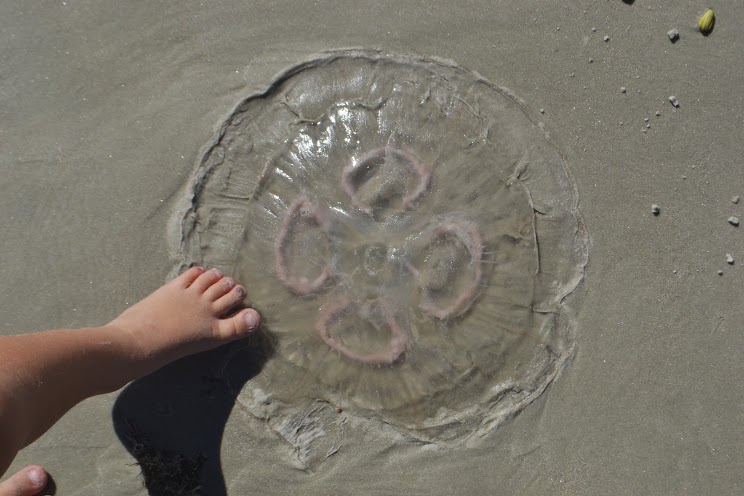An unusual event has changed the tide for beach goers in Volusia County. Thousands of people of late have been stung by jellyfish. With warmer weather, locals and well as tourists head to the beaches for summer fun. It is important to be mindful that it is also a time when marine life is active. It’s easy to forget that we enter their environment and not the other way around. Recently due to warmer water temperature and changing tides, jellyfish have pushed closer toward the beaches. Beach goers who were not aware of these animals may not have known their danger.
Jellyfish have thousands of stinging cells called nematocysts tentacles. While they do pack a punch, jellyfish stings are often treated by first removing the tentacles with a blunt object. The area can be and rinsed repeatedly with salt water (not freshwater), vinegar, or even shaving cream. Treating with heat (not cold) for 20 minutes is recommended and treatment with hydrocortisone cream may be necessary to reduce itching and inflammation. In rare cases, If one experience vomiting, trouble walking, nausea, headaches, and seizures seek medical treatment by a professional immediately For the most part cases of jellyfish stings occurring at local beaches are treated on the spot by lifeguards.It’s important to remember that we are guests in the jellyfish’s environment and we need to always be aware of our surroundings at the beach. There are many jellyfish species that are active in the summer and actually even breeding during this time.
On another summer beach subject, shark sightings can increase due not only to increased numbers during summer, but also because there are simply more people on the beach that spot them. Please keep in mind that while most people have some fear of sharks, there is actually a better chance of getting struck by lightning than getting bit by a shark. Almost all shark attacks are a case of mistaken identity, as humans are not on their typically on their dinner menu.
Stay safe and enjoy yourselves this summer, but remember to give marine life and “all” wildlife respect… and a bit of space.




















